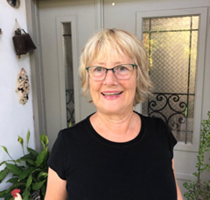
Dr. Daniella Bassis (PsyD) and Dr. Orna Megides (PsyD)
Following is an interview conducted in Hebrew by Dr. Varda Silberberg with Drs. Daniella Bassis and Orna Megides. They focus on a support group they conducted in response to needs that arose with the onset of the COVID-19 virus. A summary of this interview is provided in English below the recorded interview.
Fourth Age Support Group
We don’t stop playing because we are old. We grow old because we stop playing — George Bernard Shaw
In this article and interview, we present a support group for the third and fourth age that integrates arts, which was established in response to the need that arose during the Corona Pandemic. Initially the group members met via ZOOM and once the lockdown was lifted, they began to meet in person. The group of 12 participants range in age from 70-90. To date 22 sessions have been held, and it is still in process. We received the consent of the participants to publish the photos and the examples taken from the therapy, which appear in this article.
The group works according to the model developed by the authors, which is based on multiple years of experience in group art therapy and implementation of the conclusions and insights of the doctoral dissertations of each of them.

Dr. Bassis’ dissertation dealt with the question of whether theatrical improvisation experiences has any implication on cognitive flexibility of elderly in their third and fourth ages in a healthy population. Furthermore, the research also examined whether improvisation workshop would cause an increase in improvisation key elements such as spontaneity, playfulness-creativeness and the flowing experience among the group members, furthermore , the research examine the connection between the key agents of improvisation, and cognitive flexibility. The statistical research findings showed that after the individual participated in the improvisation activity there was no significant change that indicates an influence of the improvisation on cognitive flexibility. Nonetheless, significant improvement was demonstrated in the participants’ spontaneous, playfulness and flow abilities, as well a significate connection, between spontaneous and creativity and cognitive flexibility. (Bassis, 2019).

Dr. Megides’ dissertation dealt with group art therapy among adult bereaved siblings. She investigated the contribution of the language of art in situations of grieving and loss and the contribution of the encounter between art therapy and group therapy on the intrapsychic and the interpersonal processes. Dr. Megides’ work suggests guidelines for group art therapy, which in part are implemented in the group described in this article (Megides, 2019).






